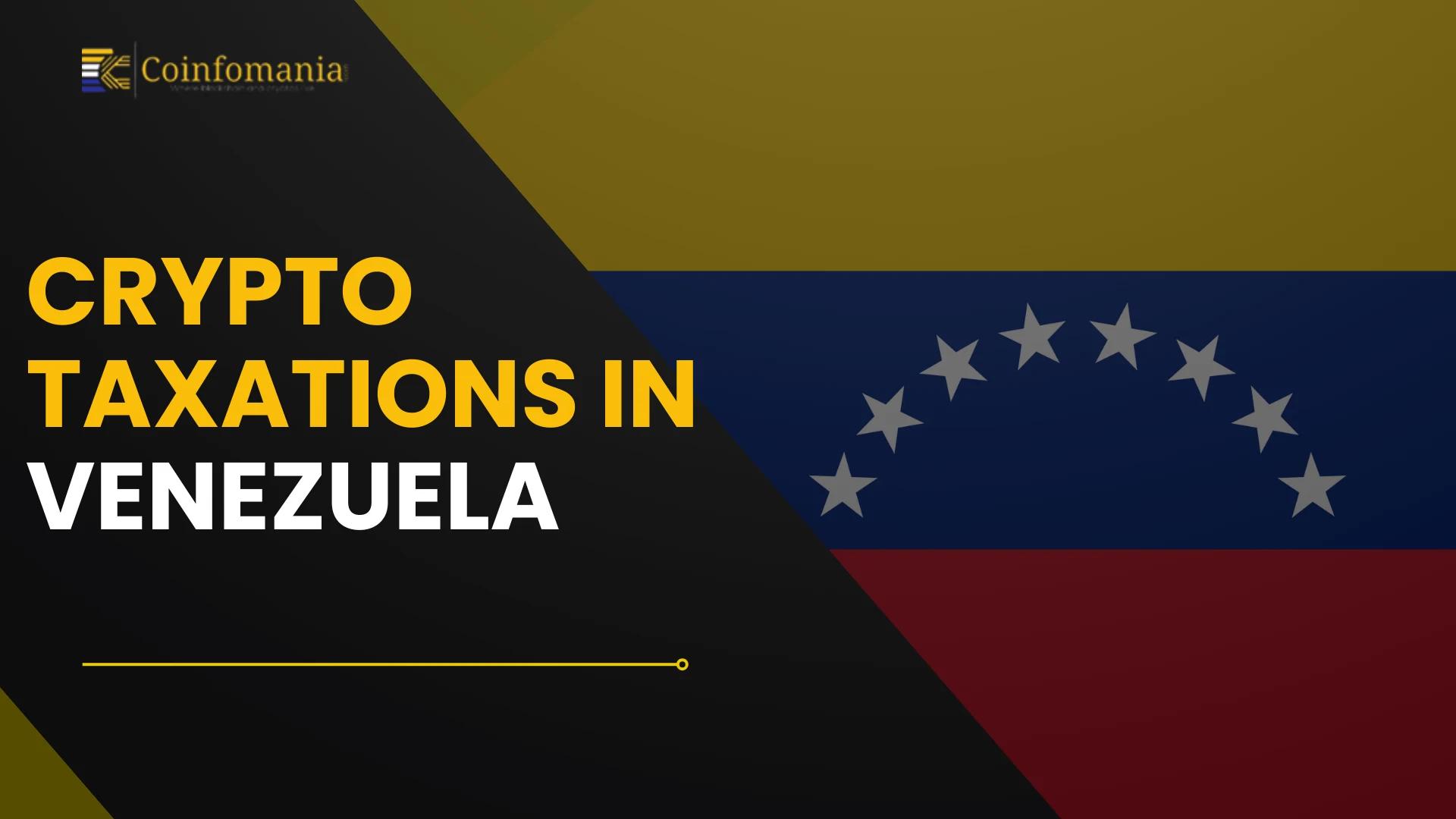Crypto Taxation in Venezuela
Venezuela’s economic struggles have made cryptocurrencies like Bitcoin a go-to for many by 2025. But with crypto gains come tax responsibilities that can’t be ignored. Get it wrong, and profits could take a hit. The Servicio Nacional Integrado de Administración Aduanera y Tributaria (SENIAT) is always watching, ready to enforce the rules. This guide breaks […]

Venezuela’s economic struggles have made cryptocurrencies like Bitcoin a go-to for many by 2025. But with crypto gains come tax responsibilities that can’t be ignored. Get it wrong, and profits could take a hit. The Servicio Nacional Integrado de Administración Aduanera y Tributaria (SENIAT) is always watching, ready to enforce the rules. This guide breaks down Venezuela’s crypto tax setup rates, filings, and more to help individuals stay compliant and protect their earnings from penalties.
Tax Authorities & Regulations
SENIAT handles tax collection in Venezuela, while the National Superintendency of Cryptoassets (Sunacrip) oversees crypto activities. No clear crypto tax law exists, so SENIAT applies the Income Tax Law, treating crypto as assets—not money. Sunacrip, set up in 2018, regulates mining and exchanges, requiring licenses. By 2025, oversight has tightened, with exchanges sharing user data. Crypto isn’t legal tender, but it’s taxed for buying, selling, or earning, especially after the 2022 Large Financial Transactions Tax hit foreign currency and crypto deals.
Types of Crypto Taxes in Venezuela
- Income Tax (ISLR): Applies to profits from selling crypto or earnings from mining and payments.
- Large Financial Transactions Tax (IGTF): Charges up to 20% on crypto transactions not in bolivars or Petro.
- Value-Added Tax (VAT): May apply to exchange fees at 16%, not crypto trades directly.
- No Wealth Tax: No specific wealth tax hits crypto, but high net worth could face scrutiny.
Tax Rates & Brackets
- Income tax ranges from 6% to 34% for individuals, based on total yearly income in Tax Units (TU).
- Businesses pay 15%–40% income tax on crypto profits, depending on size.
- IGTF takes 2%–20% on crypto payments or trades in foreign coins, sparing bolivar or Petro use.
- No clear crypto exemptions exist, but losses might lower income tax if reported.
- Miners face income tax on rewards, plus possible IGTF on sales.
Crypto Transactions & Tax Treatment
- Buying and Selling Crypto: Buying isn’t taxed; selling profits face income tax (6%–34%).
- Crypto Mining: Rewards are taxed as income when received, plus income tax or IGTF if sold.
- Crypto Payments: Taxed as income at market value, with IGTF if not in bolivars or Petro.
- Crypto-to-Crypto Trades: Count as sales, taxable on profit under income tax.
- DeFi, Staking, Yield Farming: Likely taxed as income, but rules aren’t clear yet.
- NFT Transactions: Treated like crypto, with income tax on sale profits.
Crypto Tax Reporting & Compliance
Individuals must report crypto gains on their annual income tax return (ISLR), filed with SENIAT by March 31 for the prior year (January 1–December 31). They need records of all deals—dates, bolivar values, and amounts—kept for five years. Sunacrip tracks miners and exchanges, sharing data with SENIAT. Missing reports or late filings can trigger fines or audits, especially as enforcement grows in 2025.
Tax Deductions & Exemptions
No special crypto tax breaks exist, but individuals can sometimes lower taxes by reporting losses against gains for income tax. Businesses might deduct mining costs like electricity if it’s their trade. Income below 1,500 Tax Units ($50 USD, varying with inflation) may avoid tax. Careful record-keeping helps claim these savings, and a tax pro can spot legal ways to cut costs.
Enforcement & Penalties for Non-Compliance
SENIAT and Sunacrip crack down hard in 2025, using exchange KYC data and blockchain tracking to find unreported crypto. In 2022, platforms like Binance share info, and global data deals start in 2027. Skipping taxes brings fines—10%–200% of owed amounts—or jail up to seven years for big evasion. Sunacrip can shut down unlicensed miners or seize assets. A Voluntary Disclosure option softens penalties if someone reports early, before SENIAT acts. With hyperinflation pushing crypto use, scrutiny is sky-high.
Future of Crypto Taxation in Venezuela
Taxes may get tougher as Sunacrip pushes Petro and bolivar use. New exchange rules could hit by late 2025, demanding more reports. Global data sharing in 2027 will tighten the net. The government backs crypto for sanctions dodging but wants every tax bolivar. Clearer rules or breaks for filers might come if adoption keeps climbing.
Conclusion
Venezuela’s crypto taxes, income tax and IGTF are tricky, with SENIAT and Sunacrip watching closely. People must report gains, track deals, and file by March 31 to dodge fines or jail. Taxes hit trading, mining, and payments, and rules could shift fast. Staying informed is a must. A tax expert can save time and trouble, keeping crypto use legal and stress-free.
FAQs
1. Does an individual pay tax when buying crypto in Venezuela?
No, purchasing cryptocurrency with bolivars incurs no tax. Taxes apply when selling or using it, based on profit or income.
2. How does SENIAT track crypto transactions?
SENIAT uses exchange data, blockchain analysis, and Sunacrip’s oversight to identify unreported cryptocurrency activities and earnings.
3. Is crypto mining taxed differently in Venezuela?
Yes, mining rewards face income tax (6%–34%) when earned, with possible income tax or IGTF on later sales.
4. Can an individual legally reduce crypto taxes?
Yes, reporting losses may lower income tax, and low earners might skip tax, if filed correctly with SENIAT.
5. What happens if an individual skips reporting crypto?
SENIAT may fine 10%–200% of unreported taxes or impose up to seven years’ imprisonment, based on the case.
Follow us on Google News
Get the latest crypto insights and updates.
Related Posts

India Allows Global Trade Payments in Rupees to Reduce Dollar Use
Shweta Chakrawarty
Author

South Korea and Vietnam eye $150B trade despite Trump tariff
Shweta Chakrawarty
Author

Is U.S. Tariff Heat Bringing Russia, India, China Back Together?
Shweta Chakrawarty
Author